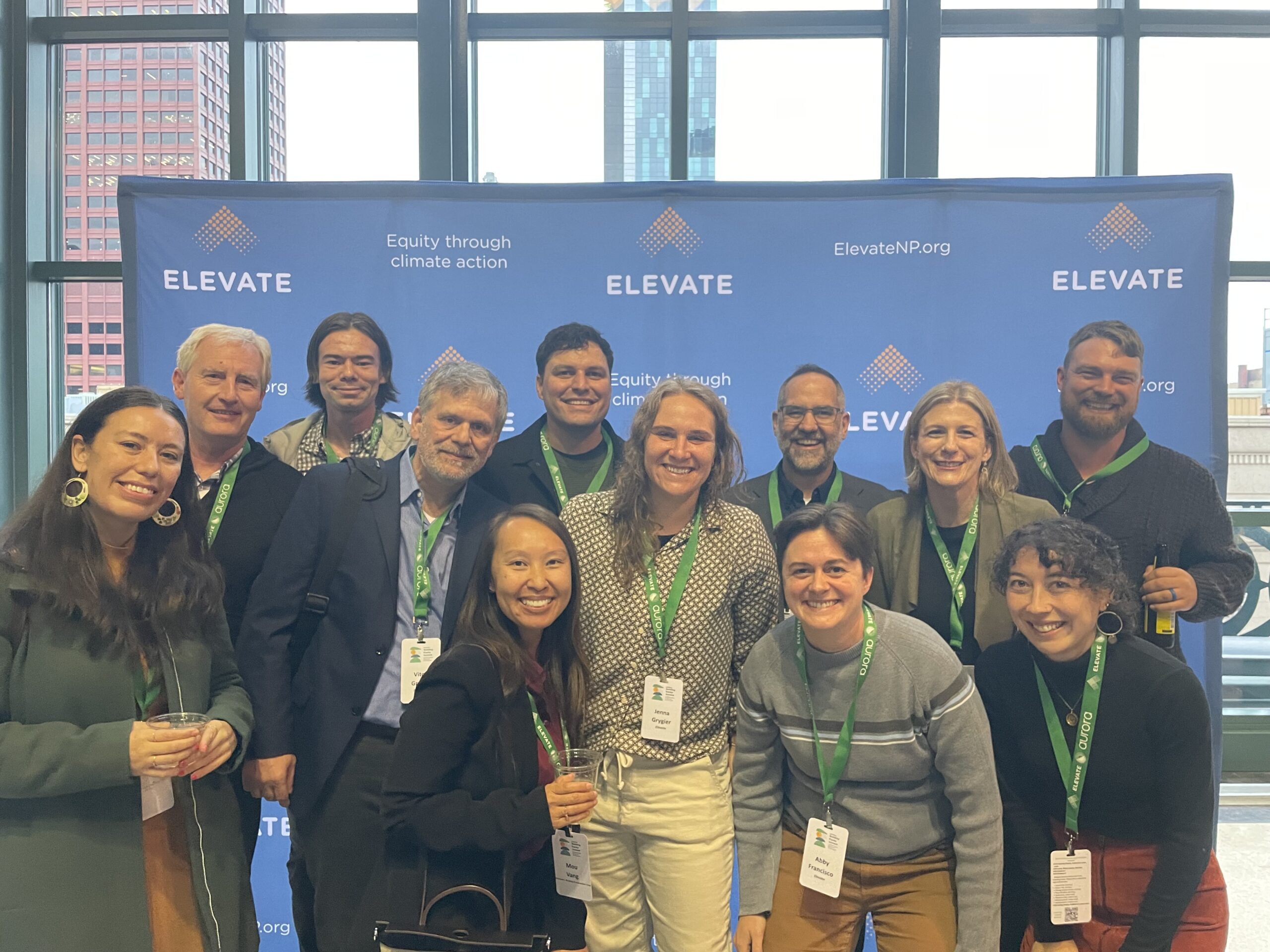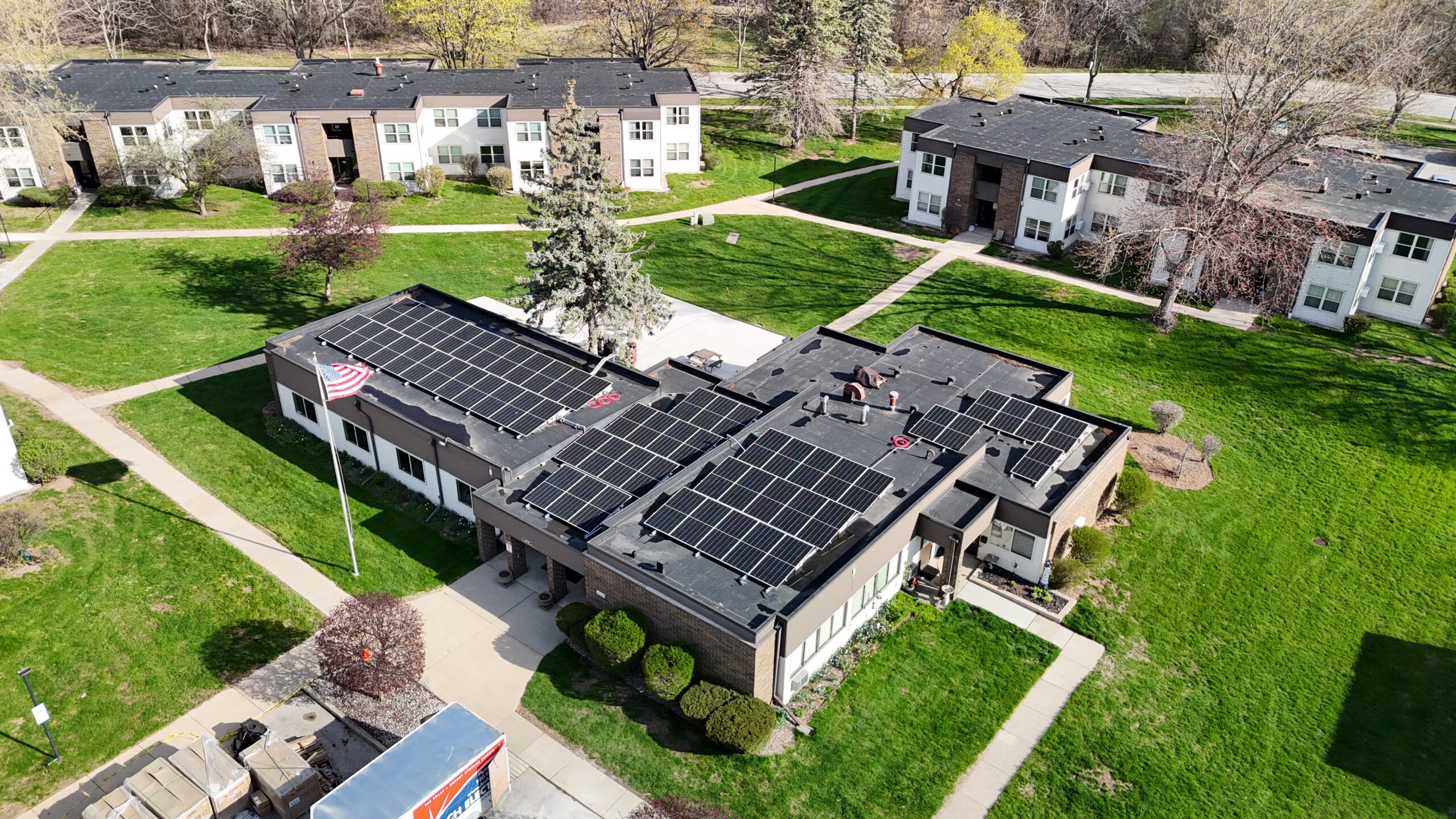Mou Vang grew up in Section 8 housing in the Twin Cities and is familiar with the outdated infrastructure that often exists in affordable housing. Now she uses her experience and knowledge to serve the residents of Wisconsin Housing Preservation Corp (WHPC). Recently, with financial support from the Public Service Commission of Wisconsin (PSC) Energy Innovation Grant Program (EIGP) and the Inflation Reduction Act (IRA), and technical assistance from Elevate Energy (Elevate), she co-led WHPC’s Green Team toward solar and battery storage for their Villa West property in Green Bay. The energy savings from these efforts will be reinvested in other areas of the property for the benefit of the residents.
WHPC has been dedicated to preserving, providing, and protecting homes for low- and moderate-income individuals and families across Wisconsin for over 20 years. With more than 9,000 housing units across Wisconsin, WHPC’s mission is not just about shelter; it’s about fostering stability, empowerment, and community well-being.
Central to WHPC’s initiatives is sustainability. In 2020 they convened a “Green Team” whose aim is to make its portfolio more environmentally friendly and efficient. By identifying opportunities for sustainable upgrades and prioritizing energy efficiency in its existing and new developments, WHPC is lowering utility expenses, reducing carbon emissions, and making the properties more comfortable for residents.
In April of 2022, WHPC received a grant from the PSC to create a microgrid at Villa West. This Green Bay property offers affordable housing for individuals earning no more than 50 percent of the area median income, with its residents being persons with disabilities or seniors.
“A lot of our properties were built in the mid to late 70s so they don’t have air conditioning,” said Mou. “In Wisconsin, not having air conditioning in a senior and disabled building is concerning.”
As an Asset Manager, Mou is regularly touring properties and can attest to the lack of progress that has been made in the quality of affordable housing. It reminded her of her childhood. On one hand, it forced her to reflect on how far she has come. On the other, she is well aware of the technological advancements that have been made since then and wonders why these properties seem to be frozen in time.
“The properties still look the same,” Mou said. “They still function the same. It really didn’t sit well with me. In 30 years, nothing’s changed.”
There is no shortage of work to be done to create more comfortable living spaces for residents living in affordable housing structures.
Embracing Sustainability through the Green Team
Partners at Elevate play a pivotal role in WHPC’s Green Team. Elevate is a nationwide non-profit specializing in clean affordable energy with a focus on low-income communities. Jake Archbell, Program Manager of Solar Programs at Elevate, leads efforts to study energy usage across properties and implement strategies to enhance efficiency.
For Jake, “The more complicated something is, the more I enjoy it. So, I love projects like this; I love doing new things and managing all the pieces and seeing them come together,” he said.

Jenna Grygier, Associate Director of High Performance Buildings at Elevate echoes Jake’s love for a challenge.
She said, “I’ve seen rooftop solar, ground-mounted solar, micro wind turbines, etc. but I’ve never seen battery storage on multi-family properties. So, it’s pretty exciting for me just to see how it all fits together.”
Bringing Solar and Battery Storage to Villa West
The initial phase of the Villa West project is nearly complete, with three of the twelve buildings having solar panels installed on the roof and backup solar battery storage. The solar panels alone amount to $14,000 of savings annually.
For WHPC, “that $14,000 is the difference between new flooring in the common space so that there’s less of a trip hazard,” said Mou.
While the battery storage has no direct cost savings for WHPC, the indirect savings are very real and tangible for the residents.
Mou explained, “Think of insulin that needs to be refrigerated but the power goes out; the medication may become unusable. Typically, insurance only covers this medication being refilled once a month. So now a person with limited income has to pay out of pocket for insulin to get through the month, in the event of an extended power outage.”
“It’s just something that I think a lot of people don’t think about because we don’t experience it firsthand,” added Mou.
When asked about the intangible benefits of this project for residents, Jenna highlighted an important, yet often overlooked aspect of making people feel valued.
She said, “Even if they [residents] don’t completely understand the mechanics of it, everyone can at least identify the solar panels. My hope is that it might make them feel more valued. That they live in a place where the owner cares enough to do something like renewable energy.”
Paving the Way for Clean Energy Benefits
Earlier this year, WHPC secured additional funding for Villa West to receive installations and storage for two more buildings. As each phase progresses, the vision of outfitting all buildings with solar and battery storage inches closer to reality, shaping a brighter, more sustainable future for Villa West and its residents.
Villa West Phase I was funded with a PSC EIGP award in 2022 for $500,000. WHPC will also be taking advantage of Focus on Energy incentives available at the time of installation completion to help fund this effort. Additionally, the IRA’s Elective Pay provision will enable Villa West to secure a federal rebate covering 30% of the solar project’s cost.
As WHPC continues to pave the way in the affordable housing sector, its commitment to sustainability stands as a testament to its ethos. Through the efforts of individuals like Mou and the Green Team, WHPC is providing housing, nurturing communities, and fostering a brighter, more sustainable future for all. In this journey towards inclusive, eco-conscious housing, WHPC is not just building structures; it’s building hope and resilience.
Mou added, “It truly is an investment back to the property and the tenants benefit from it.”

